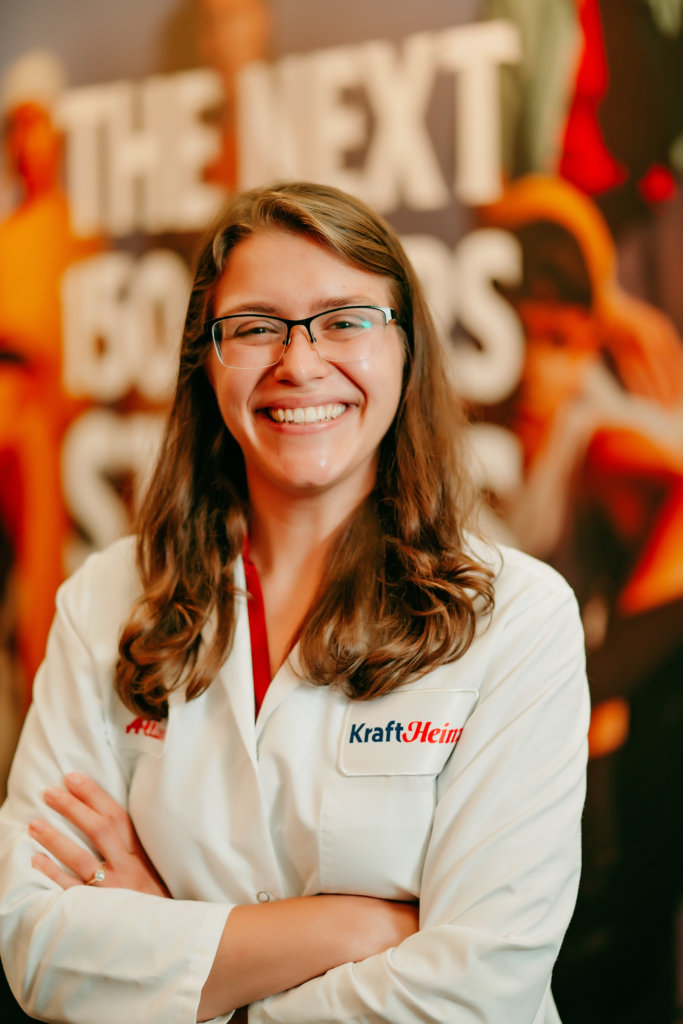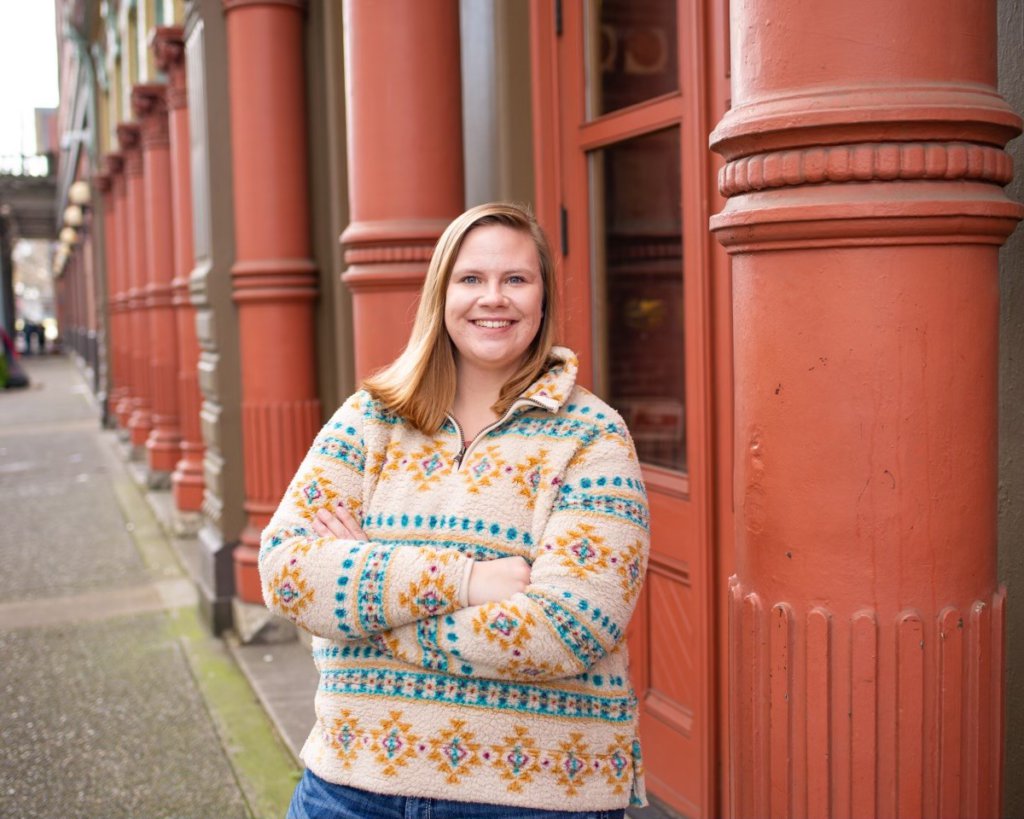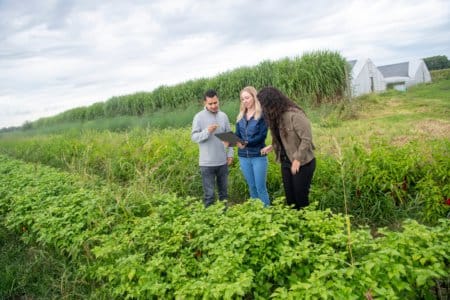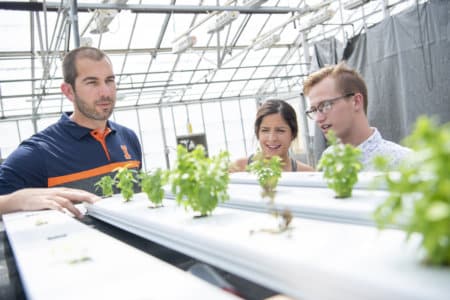Students at the University of Illinois Urbana-Champaign’s (UIUC) Department of Agricultural and Biological Engineering (ABE) go on to make a difference after graduation. It is something they’ve learned and know how to do even as students.
Much of this is due to their department’s combination of fundamental engineering skills with hands-on training in analysing complex food, agriculture, energy, and environmental systems. The many experiential learning opportunities gave these graduates insights into real-world problems — readying them to make an impact in research and industry.
From ABE to The Kraft Heinz Company
Allison Trio knew of the ABE department’s accolades: #3 ABE undergraduate programme, #4 ABE graduate programme, 80% of students work, volunteer, or do internships. What made her choose the Bachelor’s in Agricultural & Biological Engineering – Food & Bioprocess Engineering, however, was the department’s connections and curriculum. “UIUC’s programme stood out to me by being part of the College of Agricultural, Consumer, and Environmental Sciences (ACES) and the Grainger College of Engineering,” she says. “The programme’s course load is incredibly well-rounded and provides exposure to just about every field of engineering while still achieving a great balance with the core ABE courses.”

Source: University of Illinois Urbana-Champaign Department of Agricultural & Biological Engineering
At the same time, Trio could specialise in Bioprocess Engineering and Industrial Biotechnology. “What made it unique was that I felt I could completely form my own path through my studies,” she says. “I tailored my education to my specific career goal of working for a food manufacturer and being part of the process of getting food on the tables of people across the country. By supplementing my engineering-focused courses with a minor in food science, I was able to achieve that goal and marry my passions for food and complex problem solving.”
Graduating in 2017, Trio went on to work at Kraft Heinz. While she expected to be full-time in a manufacturing facility, the proper guidance from the University Relations team steered her towards research and development. Over the years, she has climbed the ladder from Corporate Management Trainee to what she is today: Principal Scientist in the Next Generation Ingredient Science team. “I have an incredibly fulfilling role leading the sodium reduction technology platform and supporting the business in making our products better for our consumers,” Trio says.
Learning by doing at the university-owned farm and a conference in Europe
It was the practical experiences at ABE that helped Alex Schmidt Brockamp become the Design Engineer who is the sole point of contact for the all-wheel tractor-scraper lower powertrain at the manufacturing company Caterpillar. That, and the internship with Caterpillar after his sophomore year. Campus accessibility to Research Park let him earn two years of work experience with the company even before completing his degree.

Source: University of Illinois Urbana-Champaign Department of Agricultural & Biological Engineering
The ABE graduate, who specialised in Off-Highway Vehicle and Equipment Engineering (OHVEE), remembers how immersive his programme was. “Because the department was smaller, I was able to quickly develop relationships with my professors and join/become active in Department clubs,” he says. “I loved going down to the ABE Farm Research and Training Centre (a university-owned farm) and inspecting different pieces of agricultural equipment. It was very hands-on and very interesting to see how everything worked.”
Learning by doing at ABE also meant learning closely with faculty and staff. “I could learn to work on and design machines that I saw every day in our fields and alongside our roads while also knowing that the Department cared about me both as a student and as a person,” he adds.
During his freshman year, one of ABE’s professors nominated Alex to attend the International Congress on Post-Harvest Loss in Rome, Italy. “The trip and congress opened my eyes to some of the challenges in agriculture around the world that are much different than farmers in the Midwest face,” he says. “This was the first of many times that the ABE department afforded me opportunities that I couldn’t have gained anywhere else.”
A progressive career and a route to industry leadership
“I was (and still am) passionate about agriculture and feeding the world,” says Kara Brockamp, an ABE graduate focusing on soil and water resources. However, it was while studying at ABE that she found a specialisation that she was interested in. UIUC is one of the leading institutions in the rail field via RailTEC in the CEE department, which was how Kara learnt how interconnected railroading is with the areas that ABE supports and how crucial transportation is for food.

Source: University of Illinois Urbana-Champaign Department of Agricultural & Biological Engineering
Today, Kara is a Manager of Public Projects at BNSF Railway. She is in her fifth location and fifth role with the same company since graduation. Proud of her progress, she acknowledges that her time in the ABE department gave her much more than just the technical know-how for the field. “I had many wonderful opportunities to practise leadership, network, solve problems, and generally work on my soft skills, all while having fun in the student organisations I was part of,” Kara says. “The most influential in my development were 4-H House and ACES Council.”
Another element that strengthened Kara’s career-readiness was her involvement in Agriculture Future of America (AFA). This national organisation brings together high-performing college students, companies and professionals in the agriculture industry. Attending several conferences, she eventually became the campus ambassador to UIUC. “I found out about my current employer, BNSF Railway, through AFA at one of their opportunity fairs,” she says. “Because of UIUC’s support of students in AFA, I have connections to colleagues at many different companies in every part of the country.”
If you want a closer look at what the Department of Agricultural and Biological Engineering (ABE) has to offer, click here to learn more.
Follow the University of Illinois Urbana-Champaign’s Department of Agricultural and Biological Engineering on Facebook, Twitter and Instagram.













